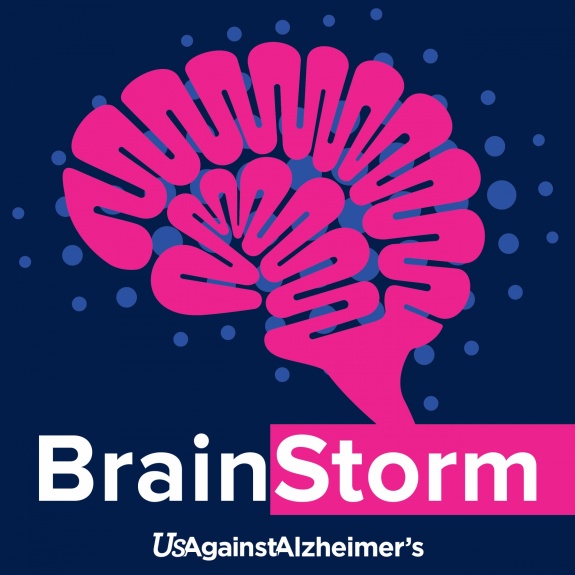Subscribe on your favorite player
Listen on Apple Podcasts Listen on Spotify Listen on Stitcher Listen on Google PodcastsJune 13, 2014
A4: First Drug Study to Prevent Memory Loss - Dr. Reisa Sperling

About This Episode
Dr. Reisa Sperling is leading a study into a new drug treatment that could prevent memory loss before symptoms show. The changes in the brain that lead to Alzheimer's occur years before symptoms, such as forgetfulness, appear. Dr. Sperling is leading the Anti-Amyloid Treatment in Asymptomatic Alzheimer's study (A4 study for short) which targets amyloid, a protein that builds up in the brain and that some researchers believe leads to memory loss. One thousand men and women are needed to participate in this three-year study, which has over 60 site locations.
This call was made possible by the generous support of the Alzheimer's Drug Discovery Foundation.
Highlights from our Alzheimer’s Talks with Dr. Reisa Sperling
The clinical study being led by Dr. Sperling, of Harvard Medical School, has the potential to accelerate our path to a cure. Here are a few things from our conversation that stuck out:
- The Anti-Amyloid Treatment in Asymptomatic Alzheimer’s (A4 for short) is a first-of-its-kind study aimed at preventing memory loss.
- One of the earliest changes in the brain before the onset of the symptoms of Alzheimer’s disease is the build-up of the amyloid protein. It begins to form plaques in the brain 10-20 years before memory loss. In fact, one third of older individuals develop amyloid plaque buildup in the brain.
- The treatment that’s being studied is specifically designed to help the brain clear that amyloid. The A4 study is a 3 and ½ year clinical trial to test whether this treatment can slow memory loss associated with Alzheimer’s disease.
- The A4 study tests a drug called Solanezumab, an antibody that helps the body clear abnormal accumulation of amyloid. This antibody binds to the amyloid to help the brain clear it out more effectively.
- Dr. Sperling’s A4 study is being conducted in 61 locations in the U.S., Canada, and Australia. Up to 10,000 individuals between 65-85 who are cognitively normal are needed to screen for the study. The goal is to find the 1,000 who are the perfect fit.
- They are particularly trying to recruit individuals from minorities, who are more likely to develop Alzheimer’s to learn about the factors that increase risk in these individuals.
- You can be part of the efforts to stop Alzheimer’s. If you think you or someone you know may be eligible for the study, call 844-A-4-STUDY or visit a4study.org.
The changes in the brain that lead to Alzheimer’s occur years before forgetfulness. This study is aimed at testing individuals before symptoms appear. We need volunteers to be a part of efforts like this to stop this disease by 2020.
We’re grateful to Dr. Sperling for joining us to tell us about this groundbreaking study. We hope you get a chance to hear from her directly.
